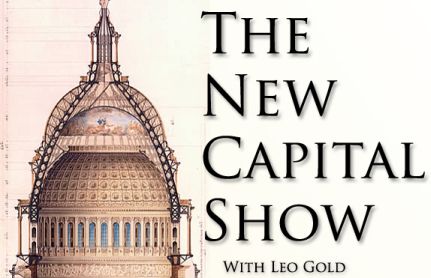Owning and Controlling
If you go to any variety of financial website, be it Yahoo or Morningstar or whatever, you will find that TXU’s current owners are a who’s who list of some of America’s largest financial services companies: Fidelity, Vanguard, State Street, Barclays, Janus, and others. Really, though, these businesses are just ownership pass-throughs, vessels to contain the very small, fractional ownership stakes of huge swaths of rank and file America, you and I and our 401k’s, IRA’s, individual and joint accounts, kids’ and grandkids’ accounts. And when you think of it that way, it’s really you and I who currently own TXU.
Owning and controlling, however, are two very different things. And those who control corporate America are very different from those who own it. Vanguard and Fidelity and their colleagues, it could be said, control our shares through their accounts and retirement plans - they control our ownership. And for what are no doubt a variety of reasons, maybe even some of them good ones, neither Vanguard nor Fidelity nor Janus nor all of them put together either sought to or were able to bring the TXU Corporation, in which they had control of enormous numbers of shares and the voting rights that accompany them, to become a responsible environmental corporate citizen. Sure, the management of TXU led by CEO C. John Wilder delivered excellent stock performance for these controllers over the past three years, but that performance had nothing to do with environmentally related policies. In fact, the stock floundered when opposition to its proposed coal plants accelerated.
Of all of the comment made about the proposed TXU sale in the past week, what struck me most was what was not being said: that Fidelity Investments, a company with approaching $2 trillion in assets under its control, and its large competitors and colleagues with similar magnitudes of wealth in their accounts, do not seem to be able to have any tangible effect on the environmental postures of their investees.
In the case of TXU, it took two buyers willing to assume control of the entire organization, in effect to purchase all of the shares currently held by Fidelity, and Vanguard, and Janus, and Barclays, and others, to bring TXU to heel. And who’s money stands behind those two buyers? Kohlberg Kravis Roberts and Texas Pacific Group, are what is termed private equity buyers, implying, of course, that their equity is private. But in regards to the vast majority of their capital, it is not private. It is capital that comes from the pension funds of our country’s workers, from the teachers in Milwaukee and the electricians in Pennsylvania and the coal plant workers of Texas. It is, therefore, the same pool of capital as that from which Fidelity and Vanguard draw theirs for their 401k’s and IRA’s and annuities. And while making distinctions between 401k’s and pensions and private and public certainly seems appropriate in light of the apparently tangible results of the TXU case, it seems entirely fair - given this similarity in capital origins, origins that devolve ultimately to each of us, the citizens of this country - it seems entirely fair to ask why KKR and TPG should be able to, almost overnight, change TXU for the better, but Fidelity and Vanguard cannot do so in the whole lengthy term of their own ownership of the same company.
The TXU deal, for many, including for me, seems to herald a tipping point in many things that this show has been trying to express for several years now: the need for fair and true costs paid by all, including business; the need for environmental responsibility in business practices; the need for proper pricing of goods and services; the need for spiritual awakening by all. But ultimately, this deal may signify another important thing. Just as C. John Wilder may never have thought that he would encounter concerted, vocal, and courageous opposition in the conservative State of Texas to a proposal to build coal plants using century-old polluting technology, so Fidelity and Vanguard and other controllers of the ownership of average Americans may think that they can ship off their responsibilities to so-called private equity buyers. The past week will instead and in time prove that they should probably think again. If, that is, they want to stay in business.
I’m Leo Gold. This is The New Capital Show.




Reader Comments